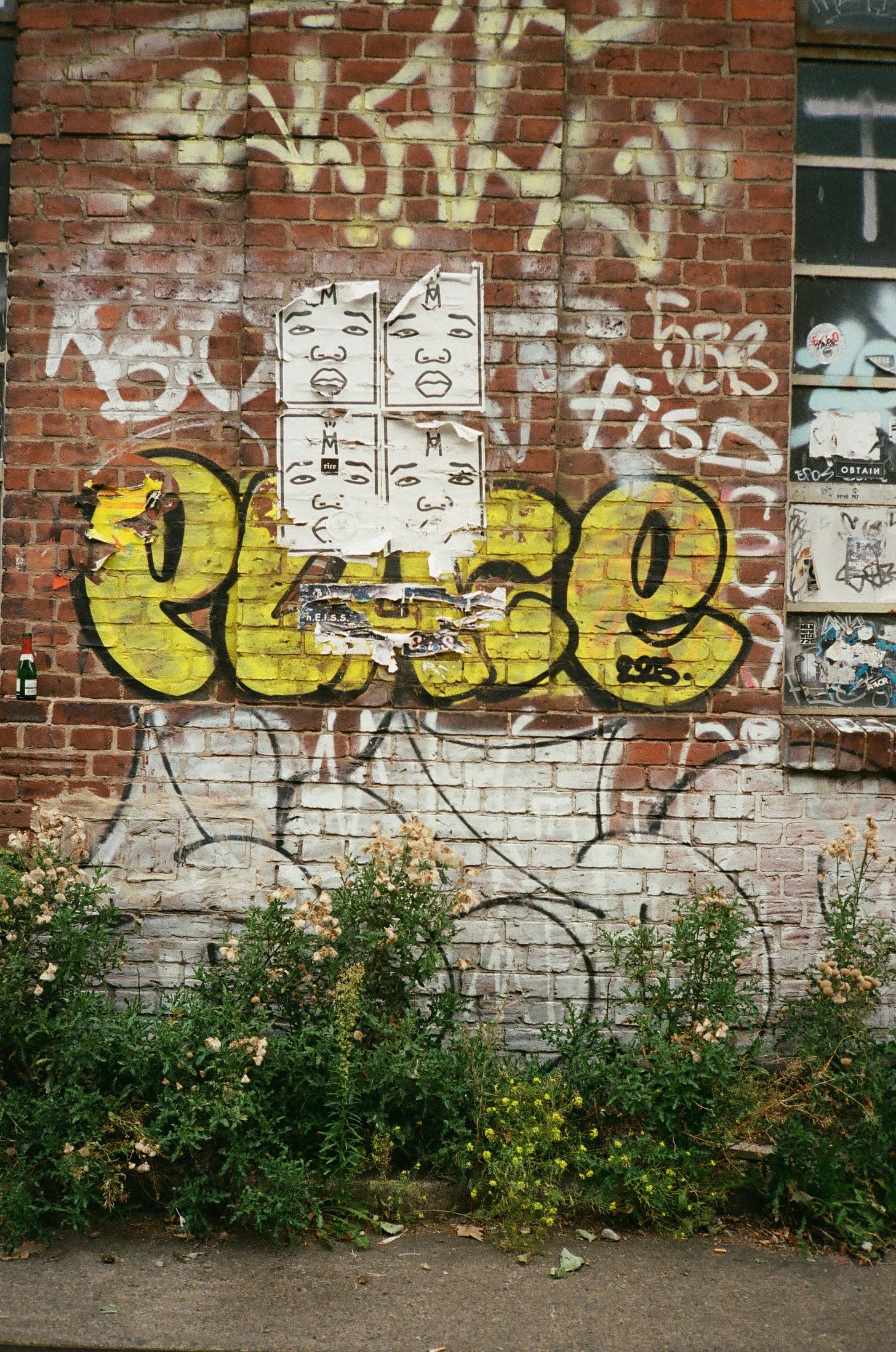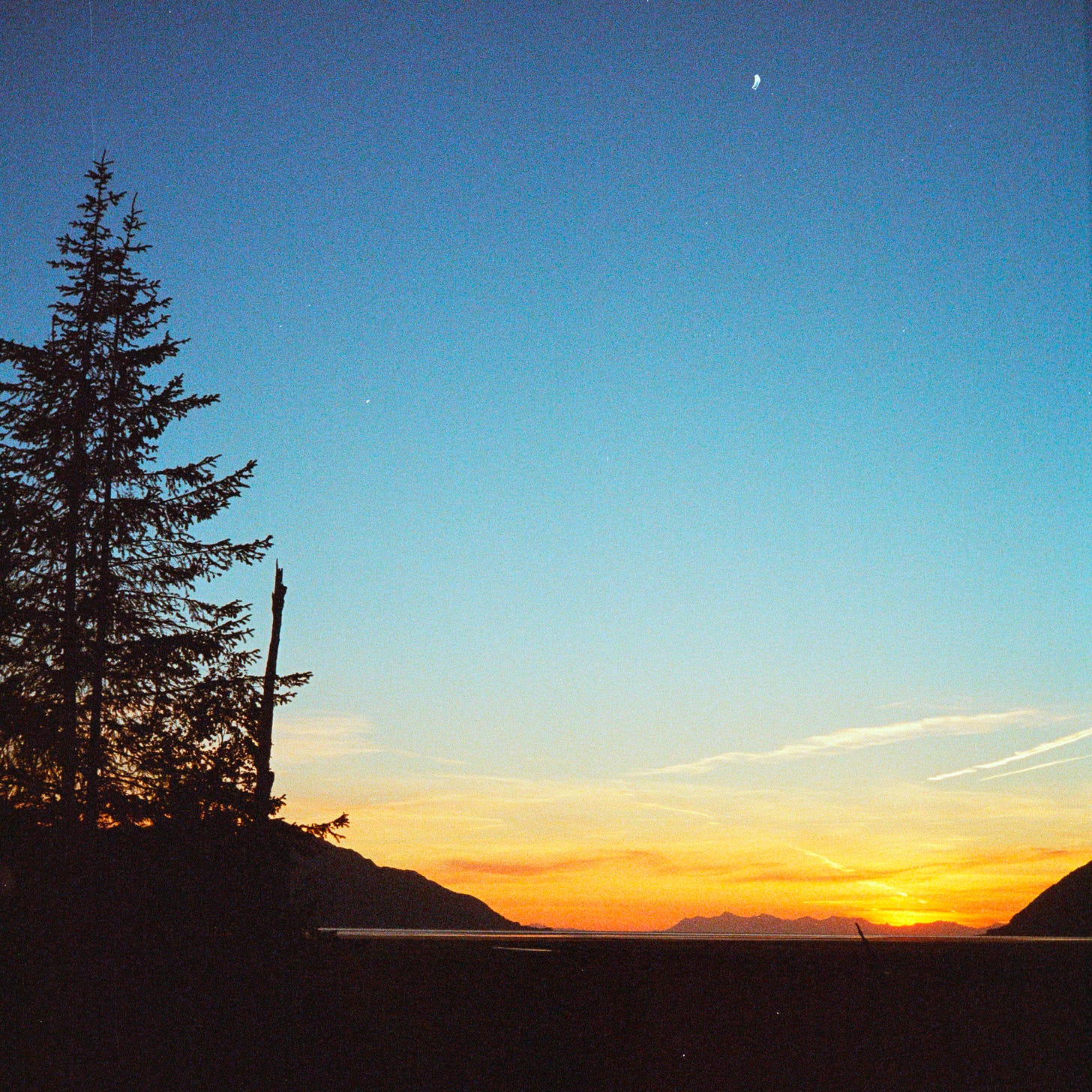Today the sky was three different colors. Pale yellow behind the mountains, then blue speckled with clouds highlighted pink.
I scan the news and fear how long it takes us to notice we are frogs mid-boil, the water already too warm to jump out. Also, where would we jump to? Mars? The past?
One could say Substack’s evolution mirrors societal collapse. One could say that, or something far less hyperbolic, and many already have. I’m just the latest to wager a guess at why my bones feel heavy when I think about adding more noise to this space. Why I’m drawn to longer projects and unseen labor instead of the constant public churn.
It’s been nearly a year since Helena Fitzgerald shuttered
. In that time, how many new features has Substack rolled out? It’s dizzying to follow. Even when I keep my head down and try to enjoy what brought me here—free blogging as a way to hone my voice, get feedback in real time, and connect with other writers—I’m not immune to the friction of swimming upstream.Nostalgia is inherent to any scene, online or off. Having just read
’s Health and Safety, I am steeped in the frantic need to capture cultural value as it shifts like a moonbeam in hand.Substack used to feel culturally valuable from both a reader’s and a blogger’s perspective. It was like joining a club that was still at least somewhat accessible, with room and enthusiasm for beginners. I engaged with mega-talents alongside relative unknowns, all possessing the energy and vigor of tapping into something new. Warehouse parties of the internet. DIY experiments with that delicious dose of capitalism that whispered maybe, just maybe, you could make money if what you wrote was truly good.
I’m reminded of the viral “machine in the garden” piece. Once a scene gets hot enough, the masses pour in. Gentrification of artists’ neighborhoods by influencers.
Of course, so-called artists’ neighborhoods never belonged to the artists, either. Immigrant enclaves displaced by well-meaning first wavers, and here as well. Substack was always a tech company, its ambitions plain from the start. But rhetoric is powerful. The people wanted to believe. We wanted to think this was a space for us, by us. A garden, a warehouse, a field with ample grain to sow.
One change I’ve noticed is how, when I first joined Substack, the gatherings took place in the separate houses of each newsletter’s comments section. Writers cultivated different forms of engagement. With some trial and error, I learned how to meet my needs.
The
company had comments sections, too—primarily its Thursday advice threads. I joined near the tail end of those being forums for discussion as opposed to debased walls of “READ MY BLOG, PLEASE.” But still, it’s where I met quite a few writers. People whom, after years of engagement, I consider to be online friends.Once Notes launched, those mini-communities lost a lot of their sparkle. It became easier, and potentially more rewarding, to “restack” another newsletter with your clever take in the hope it would reach farther. The implication being, we want to grow more than we want to connect.
I remember feeling similarly resistant to Substack’s constant prodding to add paid subscription options, even for writers like me with small audiences and no plans to monetize our work. I suppose there was beauty in the frankness: I knew then that Substack didn’t want to be simply a blogging platform. It needed to GROW! because it is a business. It needed us to GROW! because that’s how it makes money.
I get it, I think. I mean, honestly, I don’t—I’ve been a government employee for nearly all of my career. In my delusional universe, we should get paid a living wage for our work and have time to play and connect and create outside of that. Truthfully, it feels good to admit that I don’t get it. I don’t get the business model, not when I think about what society needs to function. We need governments that pay our essential workers living wages. That support the arts. That provide free health and wellness care. That give sufficient leave for everyone to rest and recharge and dream.
I’m not sure I will ever be the kind of writer who makes anyone money. I’m not sure that’s the point of what I want to do. Frankly it scared me when
shared that she received a personalized message from Substack congratulating her on the dollar amount she made from one of her notes.That’s crazy! Right??? Right…?! Right…….. ?
I dunno. People can do as they wish. The problem is more that I miss the feeling of early-years Substack, before its capitalist aims were laid bare. The wild fields and warehouses filled with enterprising young souls.
There’s a reason why a lot feels blah on here now. And although I agree with the concept that only boring people get bored, I understand how our environments impact creative output. Substack used to be a source of inspiration for me, back when I believed it buoyed risk-takers and ingenues.
It certainly still claims to do that. Yet when the money carrot is held in front of each note and each post, the work appears to suffer. Post MORE! because you never know which one is gonna go big. Share MORE! because no one has time for your thoughtful discourse when the news cycle moves this fast.
To be fair, I love the individual newsletters I subscribe to. I know there is great writing on this platform. But our environments matter. Our incentives matter.
If the aim of my work is to identify a feeling and describe it in a way that imparts meaning, it’s fitting to remark on this shift. The carrots have gotten to me, and I can exert only so much self-control to keep them at bay. I came here for connection. To be part of conversations that for so long I read silently from afar. It’s hard, then, to watch a scene move in a direction I can’t follow. It’s hard, only in that sense of, well, for a time I thought I’d found a place that offered what I sought. For a time, I was in the warehouse, dancing under makeshift lights at dawn.
I’m writing this not to announce my departure but more to pin down where I stand. Truthfully, there isn’t anywhere yet to go. So I’ll wander the streets like countless times before, listening for a beat behind doors that appear long-shuttered.
I don’t profess to know about culture beyond my simple tastes of good and bad. But if time has shown us anything, it’s that there is always a next place. And more often than not, it comes after a long and lonely wait.
Thanks for reading.







I, for one, hope you don't leave. ❤️
I'm loving being on Substack but I'm lonely for my life in traditional bookstores. I'm lonely for the return to stage performance—to rooms where I can see people's eyes.